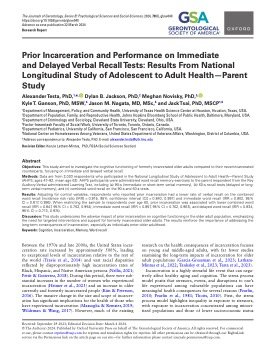By Nicholas Blagden, Luke Vinter, Eve Penford, Jade Mason & Polly Delliere-Moor
The evidence for offending behaviour programmes has expanded over several decades, with a large body of reviews producing well replicated findings attesting to the positive effects of cognitive-behavioural approaches in reducing general reoffending. These approaches aim to help participants recognise patterns of thought and action, while providing alternative perspectives and cognitive skills to help change thinking and behaviour. Related research also indicates that following Risk-Need-Responsivity (RNR) principles yields the best outcomes. In brief, RNR principles suggest that the intensity of rehabilitation services should be matched to a person’s propensity to reoffend (risk), targeted at psychological characteristics associated with reoffending (need); and, based on a cognitive-behavioural approach, tailored to individual styles of learning (responsivity). In line with such principles, His Majesty’s Prison and Probation Service (HMPPS) in England and Wales has invested in cognitive-behavioural programmes since the 1990s. Central to this offer since 2008 has been the Thinking Skills Programme (TSP), which is aimed at adult men and women who are assessed as medium and above risk of reoffending. TSP comprises 19 sessions (15 group sessions and 4 individual sessions). It is designed to support reductions in reoffending in four ways as set out below. 1. Developing thinking skills (such as problem solving, flexible thinking, consequential thinking, critical reasoning). 2. Applying these skills to managing personal risk factors. 3. Applying thinking skills to developing personally relevant protective factors. 4. Applying thinking skills to setting pro-social goals that support relapse prevention. This report qualitatively evaluates TSP, focusing on participants’ experiences of the programme and the perceived impact of the prison environment on its effectiveness.
London: Ministry of Justice 2025. 79p.















